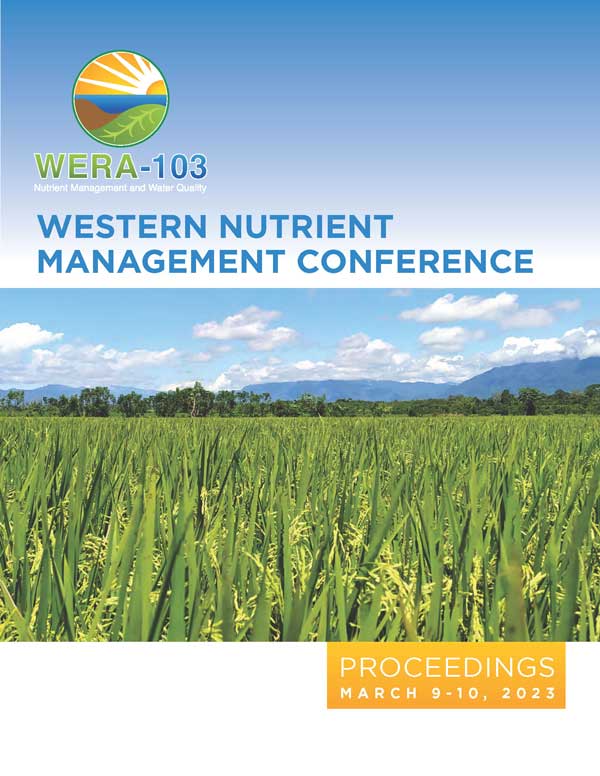Download the Conference Proceedings
Proceedings
Authors
| Filter results3 paper(s) found. |
|---|
1. Is Mitigation of Drought Stress By Zinc Oxide Nanoparticles Driven By a Nano-Specific Mechanism or Alleviation of Micronutrient Deficiency?It has been reported that zinc oxide (ZnO) nanoparticles (NPs) can promote drought tolerance in crops when used as soil amendments. However, many of these experiments were conducted in Zn-deficient growth media with no comparison to currently available Zn fertilization methods, making it unclear if the benefits from adding ZnO NPs were caused by a nano-specifc mechanism or simply by the mitigation of a micronutrient deficiency. A review of the literature shows that of 12 published experiments... J.W. Deakin, M. Potter, A. Cartwright, J. Hortin, D. Sparks, J.E. Mclean, D.W. Britt, A.J. Anderson, A.R. Jacobson, L. Yen |
2. Choosing Your Nitrogen Fertilizers Based on Ammonia VolatilizationUntil recently we have not been able to measure ammonia volatilization without impacting the surrounding environment. In the past we have used closed chambers with acid traps. These closed chambers did not reflect surrounding weather conditions, at the minimum both temperature and wind were influenced. The use of the vertical flux method allows ammonia in the air to be monitored and modeled to reflect ammonia loss without any interference of the surrounding environment. ... D. Sullivan, D. Horneck, J. Holcomb, G. Clough |
3. Ammonia VolatilizationLittle work has been reported on the loss of ammonia from soils where fertilizers have been applied in an undisturbed environment. There are a multitude of studies that have used a chamber of some sort to estimate ammonia loss. The use of a chamber of some sort means that the environment has to be altered making the data derived suspect when translated into a loss number such as kg/ha. The advent of passive vertical flux method by Wood et al., 2000 at Aubrn University in Alabama, allows for the... J. Holcomb, D. Horneck, G. Clough, D. Sullivan |
